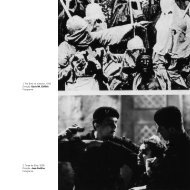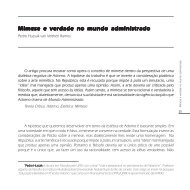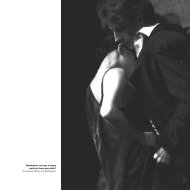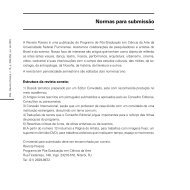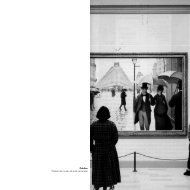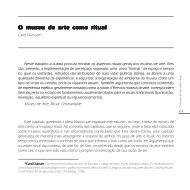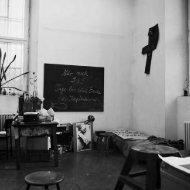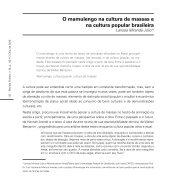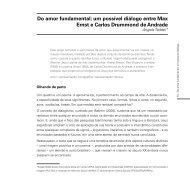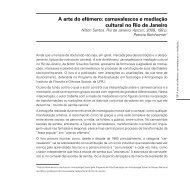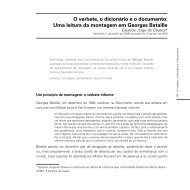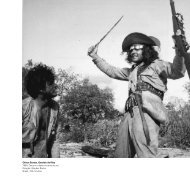Untitled
Untitled
Untitled
You also want an ePaper? Increase the reach of your titles
YUMPU automatically turns print PDFs into web optimized ePapers that Google loves.
The Institutional Theory and the Definition of Art<br />
Noéli Ramme<br />
“The Artworld,” the first article on art written by Arthur Danto in 1964, inspired the philosophers<br />
Richard George Dickie and Sclafani to build what became known as the Institutional<br />
Theory of Art. According to this theory, a work of art is “a device to which one or more persons<br />
acting on behalf of a certain social institution (the art world) give the status of candidate for<br />
appreciation.” Despite the apparent circularity of this argument, which seems to say only that<br />
what we call art is art, it has become quite widespread and widely accepted, mainly because<br />
it seems especially appropriate to address certain specific issues raised by contemporary art.<br />
I will discuss the possible advantages and disadvantages in contrast to the opposite theory:<br />
that an object can only be considered a work of art if it produces a unique kind of experience,<br />
called an aesthetic experience, in its viewer.<br />
definition of art, art world, aesthetic experience<br />
195 - Abstracts<br />
Between the Aesthetic and the Political: O Sensus Comunnis<br />
Jean-Philippe Uzel<br />
The author, questioning the political scope of certain artistic practices today, looks back to the<br />
origin of the Fine Arts system in the public space of the salons in the 18th Century to understand<br />
how the political form of community aesthetics was configured for the first time.<br />
art salons, judgment of taste, aesthetic community<br />
Experience as Power for Social Transformation<br />
Luciano Vinhosa<br />
In this article, I investigate the potential for social transformation in the aesthetic experience,<br />
attempting to understand its political dimension and how certain artistic practices are ongoing<br />
in specific contexts.<br />
current artistic practices, aesthetic experience, politics



